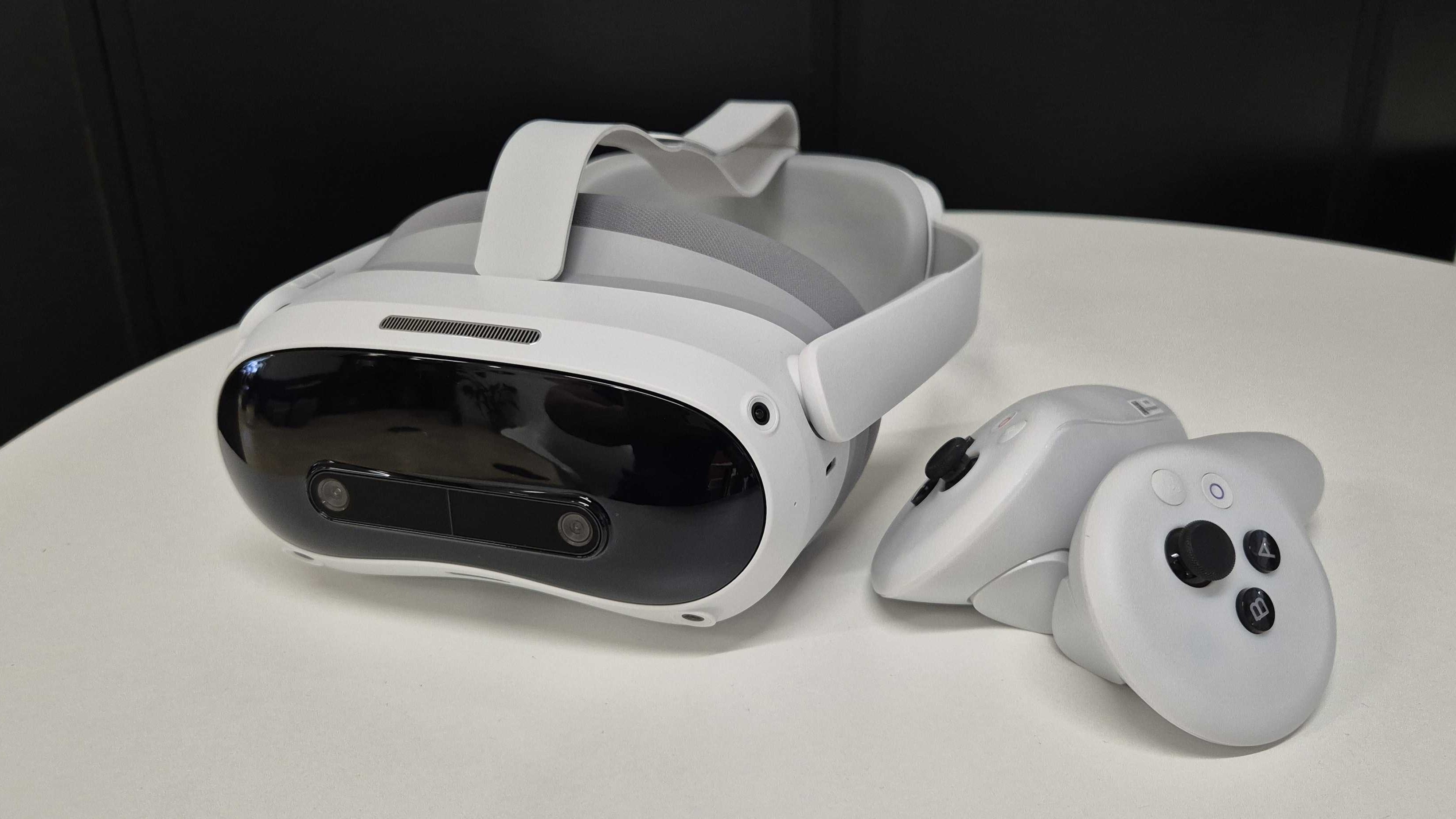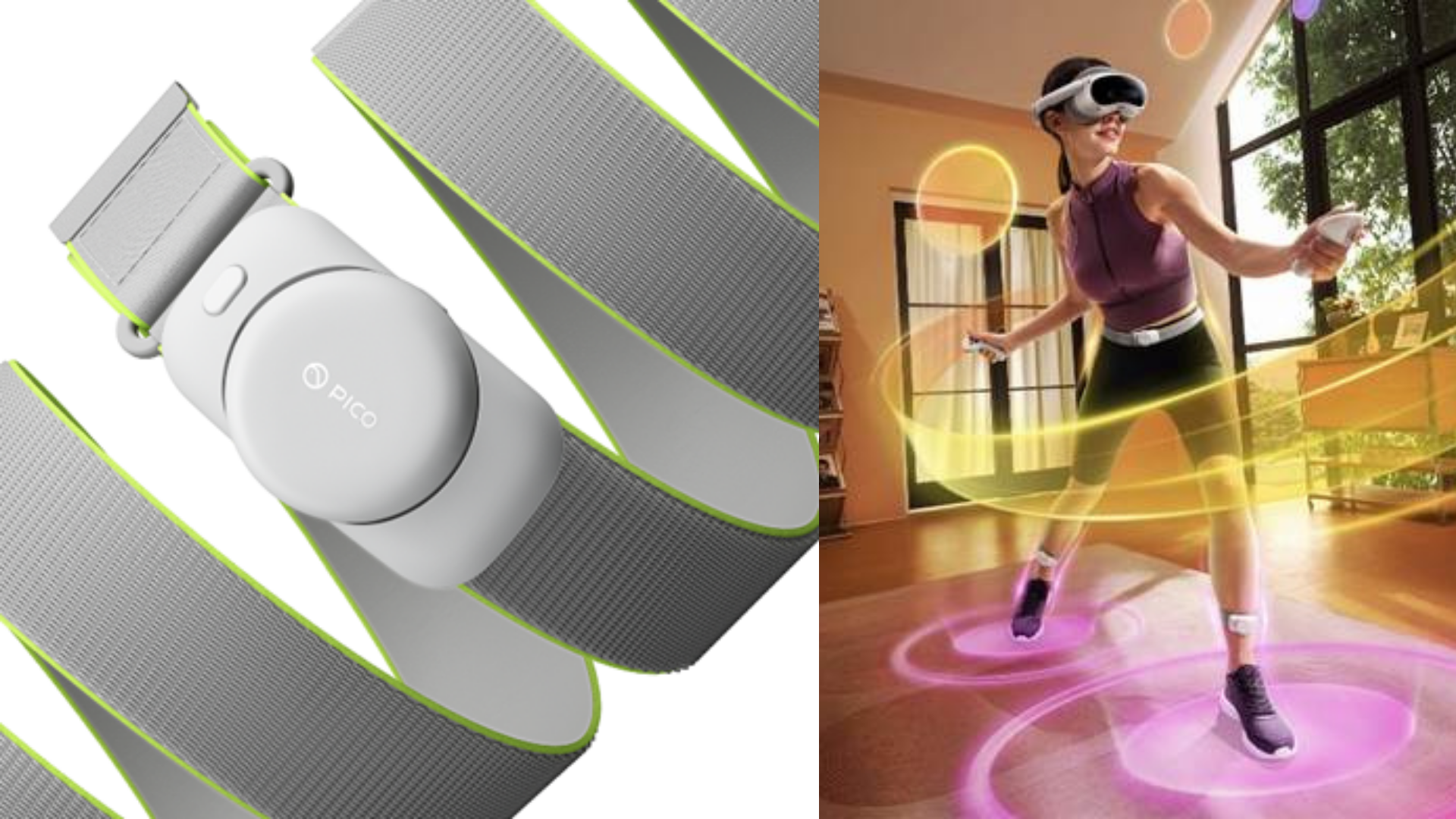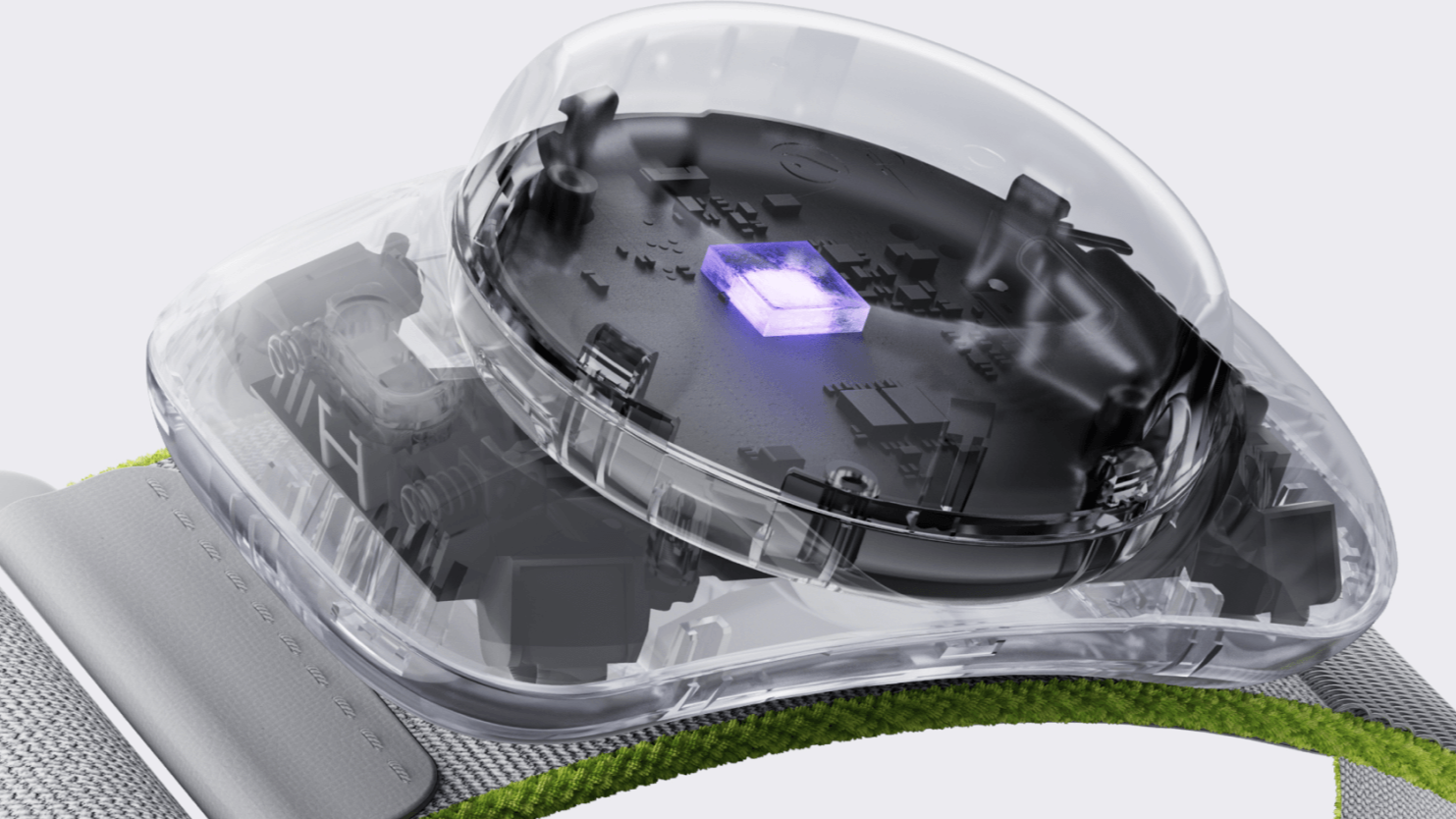Pico just updated its best VR headset feature – and now I'm even more jealous my Meta Quest 3 doesn't have it too
Your Pico 4 Ultra is getting waist trackers

- Pico just debuted waist trackers that work just like its feet trackers
- It's out now for £39.99 (around $50 / AU$85)
- When we reviewed the Pico 4 Ultra, its motion trackers were the headset's best feature
Pico has just announced an upgrade to its best VR headset feature: a new motion tracker for your waist, and yet again, I’m left wishing my Meta Quest 3 could get this upgrade, too.
When I tested the Pico 4 Ultra last year, its best feature was the pair of motion trackers you could buy as an add-on. These often came included for free as part of a bundle during sales of the VR headset.
You’d attach them to your feet, and you could bring surprisingly accurate foot tracking to supported games. Combined with hand tracking, this led to supremely immersive experiences, as you could interact with your whole body as if you were really in virtual space.

Now, that simple yet effective solution is coming to a brand new Pico Motion Tracker for your waist. In fact, the device is launching today (April 9, 2025) for £39.99 (around $50 / AU$85).
We haven’t been able to test the tracker for ourselves, but given how impressive the foot trackers are, we expect Pico’s new waist trackers will be solid, too, when used in supported titles such as VRChat and compatible PCVR titles through the Pico Connect feature.
I can see this waist tracker being perfect for VR exercising, dancing games, and allowing players to use new VR props like a hula hoop, but we’ll have to wait and see how it’s implemented.

Meta needs better body tracking
Meta does offer its own basic body tracking via your headset’s downward-facing cameras but it’s not the most robust solution. The AI it relies on is fairly good at predicting where your legs and body should be, but it isn’t always perfect. Further, it hasn’t been implemented into many VR apps in the way that Pico’s sophisticated solution has been.
Get daily insight, inspiration and deals in your inbox
Sign up for breaking news, reviews, opinion, top tech deals, and more.
While Pico’s motion tracking is superb, I’m still not convinced it’s the best headset option for most people.
It doesn’t have the same impressive software catalog you’ll find on Meta’s Quests, and it’s pricier than the Meta Quest 3S and Meta Quest 3 without offering a significant performance bump.
That coupled with it not being available to buy in every region the Meta Quest 3 is including the United States, and that it's a device that has struggled to build a name for itself except amongst VR enthusiasts who are staunchly anti-Meta.
Meta has yet to announce physical motion trackers for Quest – with its CTO shooting the idea down last year (via UplaodVR) – but I seriously hope that changes. They’re easily the best Pico feature, and the Meta Quest 3 would be much more versatile if it had access to the same tools.
You might also like
- Pico 4 Ultra VS Meta Quest 3: the battle of the best mid-range VR headsets
- This beginner-friendly train-driving simulator is the chillest Meta Quest 3 game I've played – but it's not for everyone
- You might get a free Meta Quest 3 to use on your next flight, but I'm not keen on the advertising it'll serve you

Hamish is a Senior Staff Writer for TechRadar and you’ll see his name appearing on articles across nearly every topic on the site from smart home deals to speaker reviews to graphics card news and everything in between. He uses his broad range of knowledge to help explain the latest gadgets and if they’re a must-buy or a fad fueled by hype. Though his specialty is writing about everything going on in the world of virtual reality and augmented reality.
You must confirm your public display name before commenting
Please logout and then login again, you will then be prompted to enter your display name.